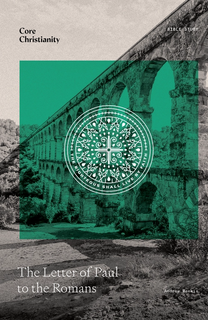This article is part of our series, “Cloud of Witnesses: Stories from the Church.” Read more from the series here.
It’s a tragedy that many people who hear the name St. Patrick only think of leprechauns, clovers, gaudy green clothes, and imbibing copious quantities of beer. Or, if perhaps they are a bit more historically inclined they might ask, “Didn’t he drive all the snakes out of Ireland?!”
We miss out on a lot when we don’t get to know St. Patrick. His biography reads like an adventure story. His passion and vision for Christian missions was revolutionary. By the end of his life, he had transformed the country of Ireland. Furthermore, beyond his historical significance, his humility and piety are examples for us today as we seek to follow Christ and answer his call on our lives.
Kidnapped and Enslaved
Patrick was born in Britain towards the end of the 4th century A.D. His family was Roman and Christian and his father Calpurnius was a deacon in the church, but Patrick didn’t grow up believing in Christ. We know little of Patrick’s youth and can only surmise that he had a relatively comfortable life given his family’s status and probable wealth. But this would all be violently ripped away from him. At 16, Patrick was kidnapped by Irish pirates, transported to Ireland, and sold as a slave.
In Ireland, Patrick worked as a shepherd for an Irish king named Miliucc.[1] The life of a slave and a shepherd was, as you might imagine, exceedingly difficult. Not only was the labor hard and his master harsh, shepherds were constantly exposed to the elements and their work took them far away from human civilization. It was lonesome work. As he traveled through the green forests and sloping mountains of northern Ireland, though he still did not profess to believe in Christ, Patrick tells us that he began to pray,
But after I reached Ireland I used to pasture the flock each day and I used to pray many times a day. More and more did the love of God, and my fear of him and faith increase, and my spirit was moved so that in a day [I said] from one up to a hundred prayers, and in the night a like number; besides I used to stay out in the forests and on the mountain and I would wake up before daylight to pray in the snow, in icy coldness, in rain, and I used to feel neither ill nor any slothfulness, because, as I now see, the Spirit was burning in me at that time.[2]
In the wilds of Ireland, with all the freedoms and comforts he had known his entire life stripped away, Patrick began to have what can only be described as a religious awakening. For him, this began with prayer—prayer to a God he wasn’t sure he believed in; prayer to a Christ he didn’t yet trust for his salvation. Yet, despite his doubt, he was irresistibly drawn to God and sought communion with him night and day through prayer. Though he did not understand it at the time, as Patrick looked back on this period of his life, he saw the Holy Spirit had been stirring up his heart to faith in Christ.
The Journey Home
Patrick labored as a slave for six years until, once again, his life was radically altered. He tells us that one night he heard a voice in his dreams which said, “[S]oon you will depart for your home country … Behold, your ship is ready.”[3] The next morning, Patrick ran away from his master and traveled 200 miles to the coast where he sought a ship to take him back home to Britain. The odds of a runaway slave making this journey safely and without being recaptured are insurmountable. Patrick knew this and saw the hand of God in his journey. Indeed, God ensured that he would not only make it to the shore but also that he would be allowed on a ship back to Britain. Patrick tells us that the ship’s captain first refused to allow him aboard. He turned and walked away, dejected, with no recourse left but to pray. But before he could even finish his prayer, some sailors called out to him to tell him the captain changed his mind. They would allow Patrick on board and bring him home! The trip was long and fraught with danger as well as a shortage of food, but after several years, Patrick made it back to his family.
Called Back to Ireland
Patrick had no contact with his family and friends for close to a decade. Their lives went on without him. This made it quite difficult for Patrick to settle back into his old life. His years as a praying shepherd in the Irish wilderness had shaped him into a very different sort of person than the Romanized Britons he returned to. He struggled to fit back into society. And, in particular, the Roman education he missed during the years he was a slave became a sore subject for the rest of his life. Nonetheless, it must have felt good to be free and back home. Patrick had no intention of going anywhere, but God had different plans.
One night, as he was sleeping, Patrick had a vision. He tells us that he saw a man he had known in Ireland named Victoricus. In this dream, Victoricus is carrying a large stack of letters. He hands one to Patrick which has the heading, “The Voice of the Irish.” Next, Patrick says, “as I was reading the beginning of the letter I seemed at that moment to hear the voice of those who were beside the forest of Foclut which is near the western sea, and they were crying as if with one voice: ‘We beg you, holy youth, that you shall come and shall walk again among us.’”[4]
At first, Patrick didn’t heed this call to return to Ireland. But the visions increased in frequency and intensity. Patrick was finally convinced to go after a mystical experience in which he reports feeling the Holy Spirit within him, praying with him. This was a disorienting experience for Patrick. He determined that he could only understand what happened in light of Paul’s teaching in Romans 8:26, “We do not know what we ought to pray for, but the Spirit himself intercedes for us through wordless groans.” After this Patrick could no longer ignore the call of God to return to the Irish as a missionary. But first, he was determined to receive some theological training.
Theological Education
Patrick was acutely aware that he had missed out on the foundational education that other deacons, priests, and bishops had received. He wrote, “I have not studied like others, who have assimilated both Law and the Holy Scriptures equally and have never changed their idiom [language] since their infancy.”[5] Not only was Patrick self-aware of his limited theological knowledge, he also knew that he had been forced to learn Irish as a slave, while his peers were being trained in Latin, the language of the upper class, church clergy, and scholars in the Western Roman Empire. Given these challenges, he was wise to stop in Gaul on his way to Ireland. He was most likely trained at the monastery of Lerins which is located on an island a little south of modern-day Cannes, France.[6]
Life as a Missionary
It testifies to the power of God’s love that Patrick could go to the Irish—to the land of his enslavers— without bitterness, truly desiring their salvation. This is in large part because of Patrick’s deep humility. He knew he was a sinner forgiven by God, and he wanted others to experience God’s grace as well. It’s worth quoting Patrick at length on his call to be a missionary in Ireland:
I give untiring thanks to God who kept me faithful in the day of my temptation, so that today I may confidently offer my soul as a living sacrifice for Christ my Lord; who am I, Lord? or, rather, what is my calling? that you appeared to me in so great a divine quality, so that today among the barbarians I might constantly exalt and magnify your name in whatever place I should be, and not only in good fortune, but even in affliction? So that whatever befalls me, be it good or bad, I should accept it equally, and give thanks always to God who revealed to me that I might trust in him, implicitly and forever, and who will encourage me so that, ignorant, and in the last days, I may dare to undertake so devout and so wonderful a work; so that I might imitate one of those whom, once, long ago, the Lord already pre-ordained to be heralds of his Gospel to witness to all peoples to the ends of the earth. So are we seeing, and so it is fulfilled; behold, we are witnesses because the Gospel has been preached as far as the places beyond which no man lives.[7]
Patrick considers it an undeserved honor and privilege to preach the gospel to the ends of the earth. That is, in fact, what he was doing. Ireland lay beyond the edges of the Roman Empire and its people were considered to be “barbarians.” Patrick did not shrink back at his calling but sought to trust God and continue to obey him no matter what happened to him. He was truly courageous and he called others to show the same fearlessness when it came to sharing the good news of the gospel, arguing, “According, therefore, to the measure of one’s faith in the Trinity, one should proceed without holding back from danger to make known the gift of God and everlasting consolation, to spread God’s name everywhere with confidence and without fear.”[8]
Patrick knew he was an imperfect sinner; he knew he didn’t have the best education; yet God used him to establish Christianity in Ireland.
The Legacy of Patrick
God used Patrick’s ministry to grow the church across Ireland. Thousands of people left behind their pagan gods for Christ, churches were established, and, in time, bishops were placed all over Ireland.[9] Furthermore, as a result of the mass conversions and Patrick’s influence, the Irish slave trade died off and violence declined.[10] All this happened because Patrick did something which few Christians had done since the time of the apostles: he went to the ends of the earth to preach the gospel and make disciples. Patrick is remarkable, not for his moral purity or intellect, but for his humility and courage to obey God’s call to preach the gospel to a people that no one else was willing to go to.
This St. Patrick’s day, may we all raise a glass to the man who brought the gospel to Ireland. And may we praise the God who used him in such a mighty way, praying that God would raise up more missionaries with the courage to bring the good news to the lost—and, consider whether that missionary might be you.
[1] Thomas Cahill, How the Irish Saved Civilization: The Untold Story of Ireland’s Heroic Role from the Fall of Rome to the Rise of Medieval Europe (New York: Doubleday, 1995), 102.
[2] St. Patrick, Confession, 16. You can read the full text of Confession online at this link: https://ccel.org/ccel/patrick/confession/confession.i.html. Patrick’s autobiography not only tells us the basic outline of his life, it also reveals to us his inner thoughts and gives insight into the nature and quality of his faith.
[3] St. Patrick, Confession, 17.
[4] St. Patrick, Confession, 23.
[5] St. Patrick, Confession, 9.
[6] Cahill, 106.
[7] St. Patrick, Confession, 34.
[8] St. Patrick, Confession, 14.
[9] Cahill, 109-110.
[10] Ibid.






